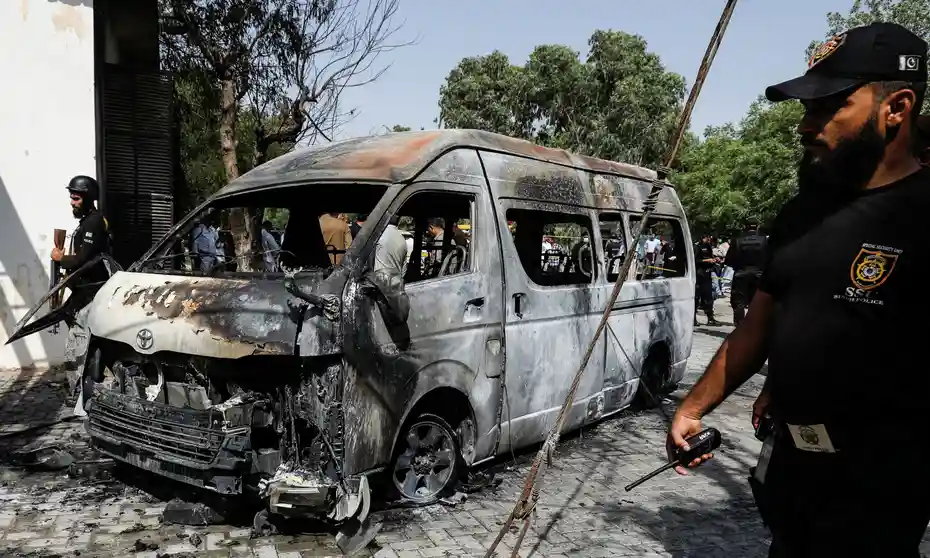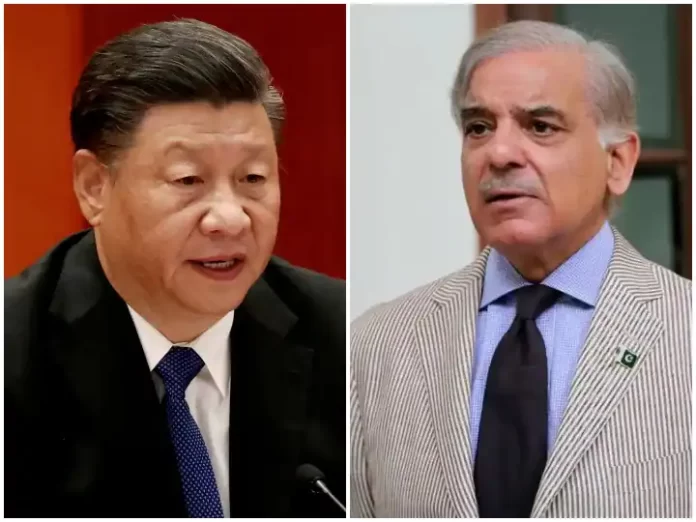“The Pakistani side is going all out to investigate and hunt down the perpetrators…. I want to stress that terrorism is the common enemy of all humanity. China and Pakistan are resolved and able to keep terrorists at bay and make them pay the price. We will continue to support Pakistan’s economic and social development and the improvement of people’s livelihood. The Pakistani government has pledged to strengthen security for Chinese personnel, projects, and institutions in Pakistan and not to allow any force to undermine the great China-Pakistan friendship and cooperation. We believe that the Pakistani side will earnestly take robust measures to ensure that China-Pakistan cooperation moves ahead safely and smoothly.”
This statement by Wang Wenbin, spokesperson of the ministry of foreign affairs, two days after the April 26 suicide bombing on a van near the Confucius Institute at the Karachi University, put an end to a lot of speculation about the Chinese possible reaction to the killing of its nationals.
A week later (May 5), Zhao Lijian, another Foreign Ministry Spokesperson followed up with yet another reiteration, saying
Pakistan’s top leadership’s expression of solidarity with China over the killing of Chinese citizens in Karachi underlined the deep-rooted nature of the relationship.
“This once again shows that the All-Weather Strategic Cooperative Partnership between China and Pakistan is deeply rooted in the hearts of the people and that the attempt of terrorist forces to undermine the China-Pakistan mutual trust and cooperation is doomed to fail,” he said while recounting that President Arif Alvi, Prime Minister Shehbaz Sharif, Speaker of the National Assembly Raja Pervaiz Ashraf, Foreign Minister Bilawal Bhutto-Zardari, PTI Chairman Imran Khan and other lawmakers visited the Chinese embassy to offer their condolences.
The spokesperson said that Beijing would work with Islamabad to get to the bottom of the truth, bring the perpetrators to justice, and give a satisfactory explanation and answer to the people of the two countries. China paid great attention to Pakistan’s commitment to strengthening the security of Chinese personnel, projects, and institutions, he added. “We are ready to work with Pakistan to ensure the smooth operation of our cooperation safely and prevent such incidents from happening again.”
These statements by Zhao Lijian and Wang Wenbin contained both a reiteration of China’s support as well as expectations of Pakistan.
Continued support by Beijing flows from the realization that the Baloch insurgency is not a low-intensity conflict anymore. It is considered a proxy terror tool directed at China, with local facilitators tactfully targeting Chinese interests across Pakistan – particularly Karachi, Gwadar, and elsewhere in Balochistan; as far back as August 2018, Balochistan Liberation Army (BLA) terrorists targeted the Chinese consulate in Karachi, followed by a similar attack in 2020 at the Pakistan Stock Exchange where the Chinese have major investments, which according to some estimates is nearly 40 percent in terms of share-holding.

The obvious goal is to hit the financial and trading nerve center of Pakistan, unnerve the Chinese, and inject uncertainty with a strategy that now seems to have also coopted enraged and alienated female bombers as well. The nexus between the Tehreek e Taliban Pakistan (TTP), the BLA, and the Baloch Nationalist Army appear to be playing out as part of the anti-China war.
Although Ned Price, the State Department spokesperson, condemned the Karachi attack again as an attack against humanity, this may not deflect the Chinese leadership from the worrying consequences of geo-politics (Ukraine war and the US projection of China’s emergence as a big challenge to the US interests). This worry, and the resolve to take on the challenge, were also evident from President Xi Jinping’s initiative that he unveiled on April 25 at the opening ceremony of the Boao Forum for Asia Annual Conference 2022. In his speech Xi introduced his “vision of upholding “common, comprehensive, cooperative, and sustainable” security for all and underlined that the legitimate security concerns of all countries should be taken seriously and that no country’s security should be built at the cost of others’ security.
Also, at the 2014 Fourth summit of the Conference on Interaction and Confidence Building Measures in Asia in Shanghai, Xi had proposed a “common, comprehensive, cooperative and sustainable security strategy for Asia”. In the following years, Xi has continuously developed the concept and advocated it on various international occasions. According to the Chinese president, the world cannot just have security for one or a few countries while leaving others insecure, and each has an equal right to participate in regional security affairs and equal responsibility to uphold security.
As far as Beijing’s expectations, it would want Pakistani leadership to walk the talk and never lower the guard. Nor is the singular focus on Chinese security alone enough to address simmering socio-economic and political issues such as alleged human rights violations, unemployment, and the controversial case-load of missing persons. We need to openly address them in an inclusive way to forestall unnecessary speculation and criticism.
Rather than demeaning rights seekers as traitors or anti-state, state institutions need to engage the youth in particular and create education, skills development, and recreational opportunities for them. A broad-based, multi-party inclusive mechanism can help address the grievances of the Baloch, and the youth in particular. That is the only way to turn Balochistan into the anchor of CPEC.




